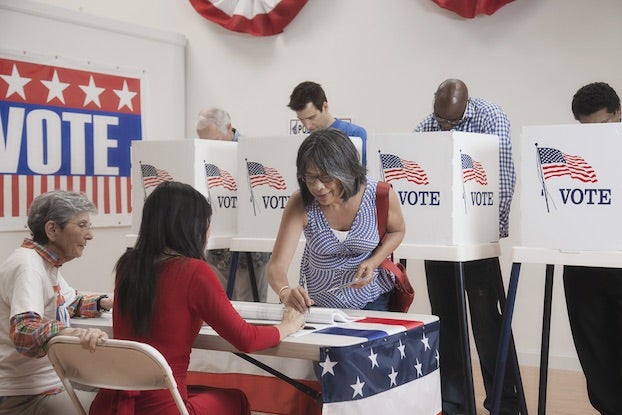Jim Beam column: Paying for roads gets tougher
Published 6:39 am Wednesday, June 28, 2023

- (Photo courtesy of Earth.Org).
Louisiana’s 20-cent-per-gallon gasoline tax that was last increased in 1990 hasn’t put a dent in the state’s $15 billion transportation backlog that is probably much bigger than it was in 2019. At that time the backlog included $11.5 billion needed for highways and $3.3 billion needed for bridges.
A 2022 report by the state’s legislative auditor said the Legislature tried 12 times between 2015 and 2021 to increase the gasoline tax and every effort failed. And getting an increase in the next few years appears unlikely.
So what happens when electric vehicles and fuel efficiency both increase? The audit said those two developments will mean $564 million less in motor vehicle revenue in the next decade.
Louisiana gets $811 million per year in federal transportation revenue and the gasoline tax brings in another $731 million, according to a news report in The Advocate.
Two steps have been taken to increase state transportation funding, but they fall far short of helping slow the growing backlog. The Legislature approved a bill that will move 60% ($300 million) of sales tax revenue annually from the sale of cars and trucks to the Transportation Trust Fund.
Owners of electric and hybrid vehicles this year started being assessed annual fees of $100 and $60, respectively, to account for their road use and offset what they don’t pay in fuel taxes, according to the Louisiana Illuminator. What that will produce in revenue is still unknown.
Governing magazine in a TNS report last October said at least eight states have bills that would establish new programs to tax drivers of electric and hybrid vehicles based on the number of miles they drive.
Hawaii, Massachusetts, Minnesota, Tennessee, Utah, Vermont, Virginia, and Washington would set up pilot programs to test the new tax system, according to the National Conference of State Legislatures.
The Associated Press had an interesting story on a similar pilot program in Oregon. It said Evan Burroughs has spent eight years touting the virtues of that program where he serves as a survey analyst.
Unfortunately, he hasn’t sold his mother, Margaret Burroughs, 85, on the idea. She said she has no intention of inserting a tracking device in her vehicle to record the miles she drives to get groceries or attend needlepoint meetings.
“It’s probably a good thing, but on top of everybody else’s stress today, it’s just one more thing,” she said. She figures it’s far less hassle to just pay at the pump, as Americans have done for more than a century.
The federal government is about to pilot its own pay-by-mile program, which will be funded with $125 million from President Joe Biden’s infrastructure program. Only three states — Oregon, Utah, and Virginia — are generating revenue from road usage charges. Hawaii will become the fourth.
The AP said the gap between what gas taxes in all the states bring in and what their transportation budgets need could reach $67 billion by 2050 because of fuel efficiency alone.
Other states are trying different programs. Colorado began adding a 27-cent tax to home deliveries from Amazon and other online retailers to help fund transportation projects. Others are adding per-kilowatt-hour taxes to electricity accessed at public charging stations.
The U.S. Bureau of Labor Statistics said electric car sales in the U.S. rose just 0.1% of total car sales in 2011 to 4.6% in 2021. However, S&P Global Mobility forecasts they will make up 40 percent of sales by 2030, and the AP said other projections are even rosier.
The transportation program director at the National Conference of State Legislatures predicts that after some 20 years of anticipation, more than a decade of pilot projects and years of voluntary participation, the charge by the mile programs will soon become mandatory.
A transportation analyst at the Citizens Research Council of Michigan questions whether that will happen. He said the failure of states to convert years of research into even one fully functional, mandatory program now raises questions whether road usage charging can really work.
“There’s no program design that I have seen that I think can be implemented at scale in a way that is publicly acceptable,” he said.
Based on past experience covering the Legislature’s failed efforts to raise the state gasoline tax, I believe that is certainly true in Louisiana. Paying a gasoline tax is a fairly simple process, but getting motorists in this state to pay for the miles they travel seems like a lost cause before it even starts.
| ReplyForward |





